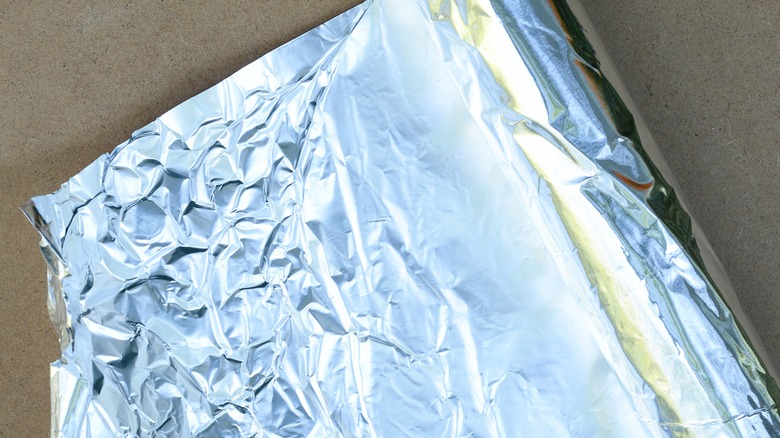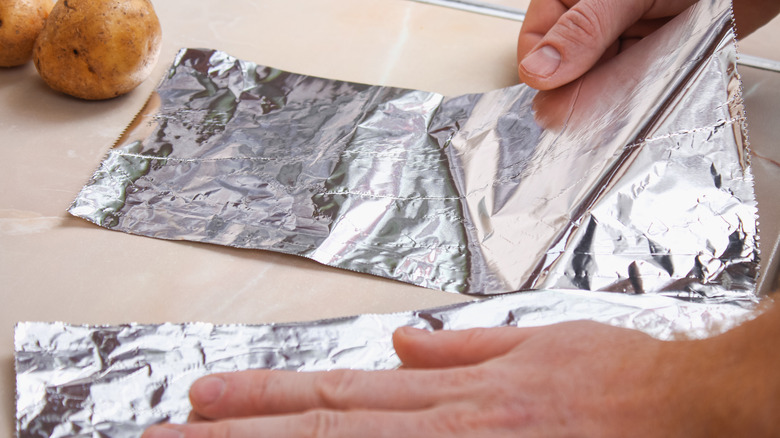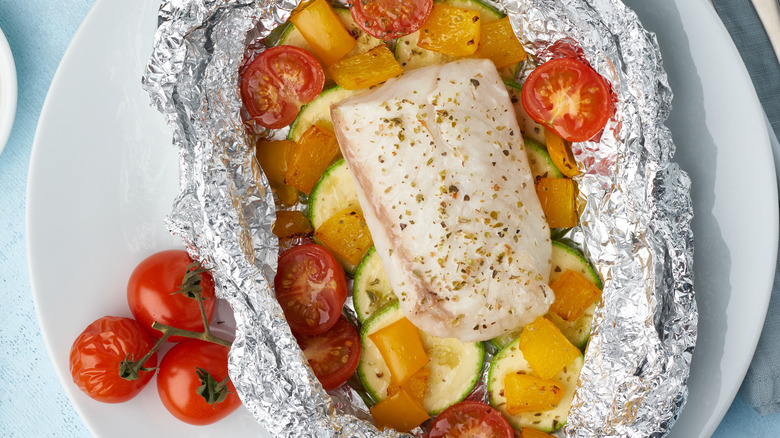The Acidic Foods To Avoid Cooking On Top Of Aluminum Foil
Aluminum foil has been changing the way we cook since J.G. Neher & Sons invented it in 1910. The Swiss company made aluminum foil by hammering aluminum into thin sheets. This was time-consuming, though, so in 1911 they developed a new process that involved rolling the aluminum into thin sheets. This made the process much more efficient and affordable. In the 1950s, aluminum foil took off in popularity, making it a kitchen staple that gave people a convenient way to store and cook food.
Today, aluminum foil is still widely used because it can withstand high heat, resist moisture, and block odors. It's also more versatile than ever because it has become thinner and lighter, and it can be paired with the newest gadgets, like air fryers, to make cooking and clean-up a cinch. While it seems that aluminum foil can do almost anything, you really should avoid cooking acidic foods in it.
Foods that cause aluminum foil to break down
Many acidic foods are not recommended for cooking with aluminum foil because they may react with the metal. Meredith Laurence of Blue Jean Chef told Insider that acidic ingredients may cause the foil to break down, causing the aluminum to leach into your food. This can make the food discolored or give it a metallic taste. These foods include tomatoes, most fruits, peppers, and marinades that may contain vinegar or citrus fruits.
This happens due to a chemical reaction called "acid corrosion," per Corrosionpedia. Aluminum is a reactive metal that is easily oxidized by acid. When acidic foods come into contact with foil, the acid can react with the metal and create compounds known as "aluminum salts," according to Eat or Toss. These salts weaken the foil, causing it to break down and potentially contaminate the food. The thinner the aluminum foil you are using, the more likely it is to react with the acid, and the longer the acidic food sits on the foil, there is more opportunity for acid corrosion to occur.
Other foods that break down foil
Acidic foods aren't the only ones that can break down aluminum foil. Spices, such as chili powder, cumin, and paprika, can also react with foil. So can foods that are high in salt, like bacon. Foods that have a high water content, like fish, can also cause the aluminum to corrode, depending on the type of foil you use and how long the food sits in it. This doesn't mean you can't grill fish in foil, though. Nevertheless, you should cook it quickly and not let it sit in the foil too long.
If you want to cook acidic foods, it's better to skip the aluminum foil and opt for a ceramic or glass dish. If you just really need the convenience of aluminum foil, you can place parchment paper on top of the foil to create a barrier between it and the food. This still gives you an easy way to clean up after cooking, but it also provides some protection for your food.


